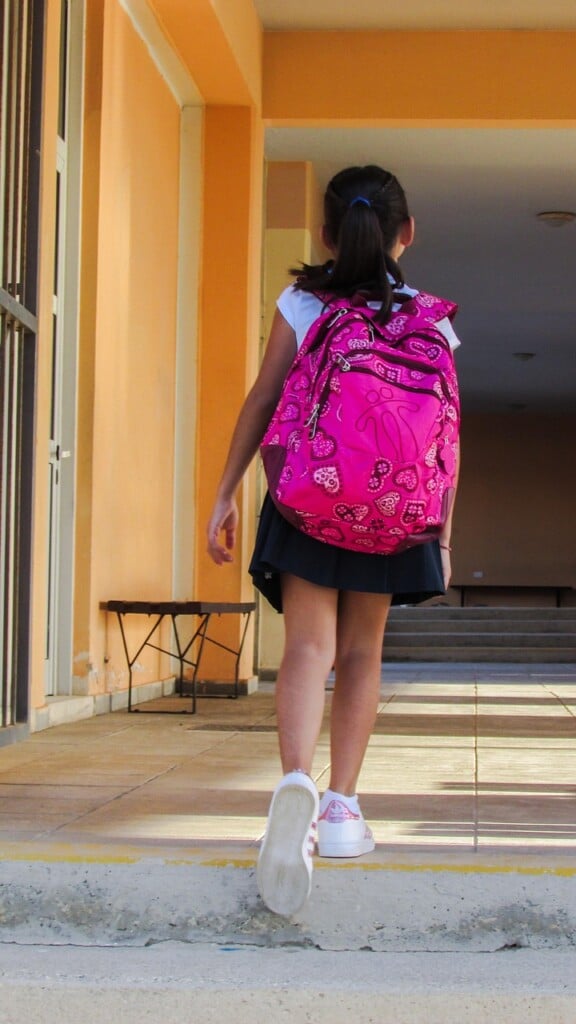THRIVE: 6 Ways to Prepare Your Child to Go Back to School

It’s back-to-school season, and for some families, it involves more than just buying new backpacks, folders, and pencils. For neurodivergent families, this is a time to focus on developing executive function skills. If you want your morning routine to be as smooth as possible, it needs to incorporate exercises that enhance executive function.
While neurodivergent children tend to have weak executive function, it’s important to remember that all kids will struggle with this in early childhood, especially during the preschool years. But around 6 to 11 years old, these skills tend to improve and children become more proficient. Neurodivergent children, however, tend to struggle with these tasks well into adulthood. This is why it’s crucial to help your child develop these skills as early as possible, not just for smoother mornings, but also for a smoother transition into adulthood.
Here are 6 ways you can help your child:
- Establish a calm morning routine.Mornings can be particularly stressful for neurodivergent children, particularly those with autism or ADHD.Implementing a calm, predictable routine that includes ample time for transitions—such as getting dressed or brushing teeth—can help them feel less rushed and more prepared for the day ahead. Use visual schedules and checklists that outline their daily activities and routines. Using picture charts or written lists to represent tasks such as getting dressed, eating breakfast, and packing a school bag helps children understand what’s next and feel more in control of their daily routines.
- Transition gradually into the school schedule. My preference for a slow re-entry is about two weeks, but I recommend giving yourself no less than one week to adjust your sleep schedules and wake-up times to align with the bell schedule.This helps avoid abrupt changes that can be overwhelming, allowing them to ease into the routine. Parents can also provide sensory tools like noise-canceling headphones, fidget toys, or weighted blankets, to help them manage overstimulation and stay focused throughout the school day. Be sure to check with your child’s school to see what is allowed or what canbe added to their IEP or 504.
- Practice the routine ahead of time. Before school starts, practice the route to school, how to get on the bus, and navigating the school hallways. Familiarize them with the environment and routine to reduce anxiety and help them adjust to new settings. Also prepare them for potential disruptions (such as substitute teachers or schedule changes) by creating a “what-if” plan or using stories to explain how to cope with changes in routine.
- Create an evening routine. A consistent evening routine helps neurodivergent children unwind after a stimulating school day. Different sensory needs require different approaches to winding down. Some children may enjoy reading, while others prefer listening to music. This is a time to explore your child’s particular needs.
- Offer consistent encouragement. This boosts their confidence and self-esteem as they navigate the school environment. Reinforcement and rewards,like praise or small treats for following their routine, will help your child stay motivated and feel a sense of accomplishment.
- Maintain open communication with teachers. A true parent-teacher partnership begins before the first day of school. Regular communication with your child’s teachers and school staff is key to supporting a successful school routine. Share insights about your child’s needs, preferences, and any accommodations that will help them feel more comfortable, such as preferred seating or quiet breaks. If your child is in 8th grade or older, they can start making these requests themselves. This will help your child feel invested in their education and take accountability for their actions.
While these strategies emphasize the importance of creating structured, supportive routines tailored to the unique needs of neurodivergent children, they are not a one-size-fits-all solution. The goal is to make the back-to-school transition smoother and less stressful for both the child and their family, and if this can be achieved with just a few of these tips, then that’s a fantastic start.
BEA MOISE is a board-certified cognitive specialist, author, neurodiversity coach, and consultant for both individuals and businesses, a featured expert for NBC News, and the neurodivergent expert for Verizon. Follow her UNIQUE parenting channel on YouTube or on Instagram @beamoiseauthor.









